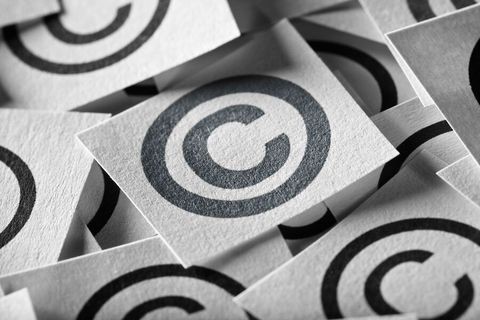Administration’s DEI Rollback Efforts Paused by Federal Judge
Client Alert | 5 min read | 02.24.25
Late on Friday, a federal judge in Maryland issued a preliminary injunction pausing certain elements of the Trump Administration’s two recent executive orders (“EOs”) addressing “illegal DEI programs.” The two EOs, Exec. Order 14151, Ending Radical and Wasteful Government DEI Programs and Preferencing (the “J20 Order”) and Exec. Order 14173, Ending Illegal Discrimination and Restoring Merit-Based Opportunity (“J21 Order”), contain a number of provisions that, among other things, direct the federal government to dismantle “illegal DEI programs” within federal agencies and federal contractors. Please refer to our prior alert on these EOs for a full breakdown of the provisions in each.
The Lawsuit
In early February, a coalition of groups representing college professors, school diversity officers, and restaurant workers, as well as the Mayor and City Council of Baltimore sued the Trump Administration in federal district court in Maryland, alleging that the EOs violated the First and Fifth Amendments of the Constitution as well as the Constitutional separation of powers. The Plaintiffs sought a preliminary injunction over three specific provisions of the EOs:
- J20 Order § 2(b)(i) (the “Termination Provision”):
- “Each agency, department, or commission head, in consultation with the Attorney General, the Director of OMB, and the Director of OPM, as appropriate, shall take the following actions within sixty days of this order… terminate, to the maximum extent allowed by law, . . . all . . . ‘equity-related’ grants or contracts[.]”
- J21 Order § 3(b)(iv) (the “Certification Provision”):
- “The head of each agency shall include in every contract or grant award: … (A) A term requiring the contractual counterparty or grant recipient to agree that its compliance in all respects with all applicable Federal anti-discrimination laws is material to the government’s payment decisions for purposes of section 3729(b)(4) of title 31, United States Code; and (B) A term requiring such counterparty or recipient to certify that it does not operate any programs promoting DEI that violate any applicable Federal anti-discrimination laws.”
- J21 Order § 4(b)(iii) (the “Enforcement Threat Provision”), stating :
- “To further inform and advise me so that my Administration may formulate appropriate and effective civil-rights policy, the Attorney General, within 120 days of this order, in consultation with the heads of relevant agencies and in coordination with the Director of OMB, shall submit a report to the Assistant to the President for Domestic Policy containing recommendations for enforcing Federal civil-rights laws and taking other appropriate measures to encourage the private sector to end illegal discrimination and preferences, including DEI. The report shall contain a proposed strategic enforcement plan identifying . . . (iii) A plan of specific steps or measures to deter DEI programs or principles (whether specifically denominated ‘DEI’ or otherwise) that constitute illegal discrimination or preferences. As a part of this plan, each agency shall identify up to nine potential civil compliance investigations of publicly traded corporations, large non-profit corporations or associations, foundations with assets of 500 million dollars or more, State and local bar and medical associations, and institutions of higher education with endowments over 1 billion dollars.”
The Injunction
On Friday, U.S. District Court Judge Adam Abelson granted the preliminary injunction on a nationwide basis (i.e., not just limited to the Plaintiffs in this case), stating:
Defendants other than the President, and other persons who are in active concert or participation with Defendants (the ‘Enjoined Parties’), shall not:
- pause, freeze, impede, block, cancel, or terminate any awards, contracts or obligations (“Current Obligations”), or change the terms of any Current Obligation, on the basis of the Termination Provision;
- require any grantee or contractor to make any “certification” or other representation pursuant to the Certification Provision;
- bring any False Claims Act enforcement action, or other enforcement action, pursuant to the Enforcement Threat Provision, including but not limited to any False Claims Act enforcement action premised on any certification made pursuant to the Certification Provision.
In his lengthy opinion, Judge Abelson wrote that the plaintiffs in the case had established that they would suffer irreparable harm under the order and had “shown they are likely to prove” that provisions of the EOs were “unconstitutionally vague on their face,” and beyond that, provisions of the EOs “squarely, unconstitutionally,” violated freedom of speech. The opinion states: “The White House and Attorney General have made clear . . . viewpoints and speech considered to be in favor of or supportive of D.E.I.” are “viewpoints the government wishes to punish and, apparently, attempt to extinguish.” The opinion continued: “As the Supreme Court has made clear time and time again, the government cannot rely on the ‘threat of invoking legal sanctions and other means of coercion’ to suppress disfavored speech.”
The Impact
The practical effect of this order is an immediate pause on all efforts by the Administration – including actions taken by agency heads – to rollback DEI programs within federal agencies and maintained by federal contractors. Simply put, pending appeal, the order relieves federal contractors of the obligation to execute certifications subject to the False Claims Act and bars the government from (i) impeding or terminating any existing awards/contracts pursuant to the anti-DEI EOs, and (ii) bringing an enforcement action under the False Claims Act pursuant to the EOs. Similarly, certification requests premised at least partially on these EOs should cease while the injunction is in effect.
That said, there are certain parts of the EOs that were not addressed by the injunction, Notably, the preliminary injunction did not enjoin the Attorney General “from preparing the report [containing specific steps or measures to deter DEI programs or principles that constitute illegal discrimination] pursuant to the J21 Order or engaging in investigation.” This sentence refers to the directive to agencies to identify up to nine potential civil compliance investigations of organizations that include: publicly traded corporations, large non-profit corporations or associations, foundations with assets over $500M, state and local bar and medical associations, and universities with endowments over $1B. Federal contractors should also be aware that the Department of Justice may continue to investigate entities for potential violations under Section 1981 and various other federal anti-discrimination laws, even though the certification requests must cease. Moreover, the Department of Justice will likely promptly appeal the order and the scope of the injunction.
We will continue to monitor this litigation and provide guidance as developments occur. Please do not hesitate to reach out with any questions in the meantime.
Contacts
Insights
Client Alert | 2 min read | 04.17.25
Will the Supreme Court review the Ninth Circuit’s unique Server Test for online copyright infringement? After the Ninth Circuit recently affirmed the Server Test, a photographer and copyright owner has requested certiorari. Petitioner-Plaintiff, Elliot McGucken, is a landscape photographer. Respondent-Defendant, Valnet, Inc., is the owner of a travel website located at “www.thetravel.com.” McGucken sued Valnet for copyright infringement when Valnet embedded on its site a number of links to McGucken’s Instagram posts. The district court, bound by the Ninth Circuit’s en banc decision in Perfect 10, granted Defendant’s motion to dismiss, finding that the Server Test foreclosed McGucken’s direct infringement claim as a matter of law, because Valnet linked to the images and did not store them on its own servers. The Ninth Circuit affirmed in a panel decision. McGucken now requests the Supreme Court to review the validity of the Server Test, which is unique to the Ninth Circuit.
Client Alert | 5 min read | 04.15.25
Is Section 230 Going to Change? The FTC, DOJ and FCC Signal Significant Change for Online Businesses
Client Alert | 4 min read | 04.14.25
Client Alert | 4 min read | 04.10.25
Hikma and Amici Curiae Ask Supreme Court to Revisit Induced Infringement by Generic “Skinny Labels”







